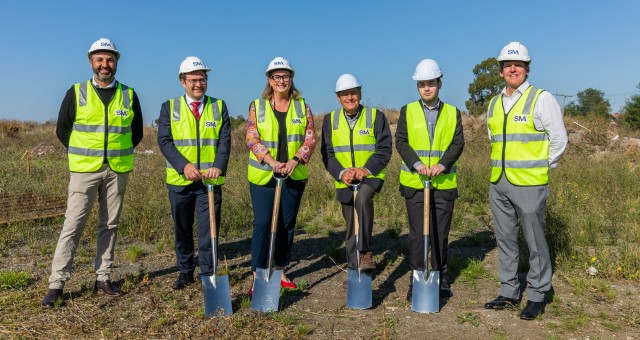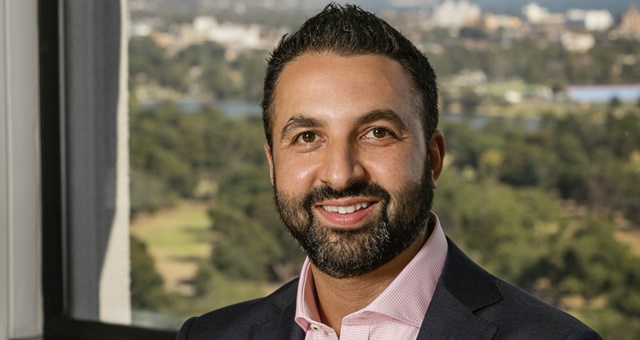The Veriu Group is making its mark in Australia’s apartment hotel landscape with over 3,000 rooms operating across 21 sites and a further 17 sites in development across both the Veriu Hotels and Suites and Punthill Apartment Hotels brands.
Here, Veriu Group CEO, Zed Sanjana, discusses key trends, challenges and opportunities in this rapidly growing segment.
Market challenges
Upward pressure on construction costs
There’s no doubting the last few years have been challenging ones for the property sector, which has experienced significant increases in the price of commercial construction since the pandemic. This has been driven by a combination of factors including rising inflation and interest rates, supply chain uncertainty and domestic skilled labour shortages. Separately, the failure of a number of construction companies has reduced the competition in the sector which has driven up pricing further. While the accommodation market has bounced back faster than expected, the real growth in profitability for the sector after accounting for increased costs, strongly points to the fact that the Average Daily Rates (ADR) growth has not been substantial enough to maintain pace with the escalations in construction pricing. We’re expecting some easing of this as the labour market opens up, coupled with increased migration and a slowdown in the economy, which will increase competition for development projects within the construction sector.
Capitalisation rates
Hotel feasibilities have also come under increasing pressure for developers, with valuers finding it difficult to sustain historical hotel capitalisation rates in an environment of consecutive interest rate rises. On the positive side, market sales evidence in the hospitality asset sector has demonstrated continued strong appetite and competition for quality CBD and suburban assets from buyers, which have enabled capitalisation rates to remain more stable and resilient than other assets classes in the property sector. The market’s continued strong performance and sector confidence in the underlying dynamics of the tourism industry outlook are important to sustain valuations, which is the single most important stimulator (or inhibitor) of growth in new supply.
Financing new projects
Developers remain under ongoing pressure from financiers to present hotel development projects that are underpinned by professional operators with a track record of success in the sector. Since the pandemic, when various hotels were temporarily closed down for extended periods, financiers have begun to place increased scrutiny on hotel management agreements, while revealing an increased appetite to finance new hotel projects with proven operators who are prepared to underpin income with a lease structure.
Building codes and regulations
Compliance with building codes and regulations is essential for new hotel builds. However, navigating the complex regulatory landscape has become increasingly time-consuming and costly. The recent changes in NSW with the implementation of greater control and oversight by the NSW building commission increases further the level of uncertainty and inefficiency for the construction and development industries.
Market opportunities:
Increase in ADR
The significant pent-up demand for travel has resulted in remarkable growth in ADR by the end of December 2022, surpassing pre-pandemic rates in all major markets. Nationally, ADR has increased by 24% over the year, reaching $228, which is 23% higher than the rates observed in 2019. Additionally, occupancy levels are only 10% lower than pre-pandemic levels, currently standing at 65%. This indicates a strong recovery in the hospitality industry, with both ADR and occupancy trending positively and approaching, or even surpassing, the levels seen before the pandemic. Increased top line performance significantly assists the ability for the industry to provide Developers with more compelling cashflows to support the increasing pressures on hotel developments.

Office sector conversion opportunities
One of the permanent changes post-pandemic, has been a shift in the level of permanent employer/employee arrangements for working remotely. As a result, the national office vacancy rate has steadily increased, as the supply of space, much of it baked in through new development, has outpaced demand. This has created pressure on B grade buildings which have struggled to compete against newly constructed A-grade office buildings with modern end of trip facilities and tenant amenities. This has, in turn, created enormous opportunity for hotel conversion. With owners considering the significant capex and lease incentive requirements to compete with A-grade buildings, hotel operators with a proven track record and a guaranteed long-term lease structure, are becoming an increasingly compelling proposition for office asset owners.
Recent openings/performance
Overall, the Veriu Group has enjoyed a strong 12 months, with the continued expansion of its apartment hotel accommodation model nationally. Since 2020, it’s opened and added seven new hotels to its portfolio, representing network growth of 50% in four years, and an increase in inventory of 80%, taking the number of rooms operated by the Group from 759 to over 1300 nationally. (figures as of August 2023)
June alone saw the opening of its second Victorian Veriu property – Veriu Collingwood, as well as the new Punthill Parramatta, which will serve as a further springboard to its strategy for growth in the NSW market under both its Punthill and Veriu brands. This follows on from the recent opening of Punthill Norwest, as well as the commencement of construction earlier this year on several greenfield sites including Punthill Maitland in regional NSW, Punthill Sunshine and Punthill Liverpool. Additionally, four to six more hotels are in the including Punthill Ryde.
Key to the Group’s success has been its unique long-term lease model which has continued to prove a really attractive option for developers who are looking for certainty of income and ability to finance large scale developments more easily in the current market.



